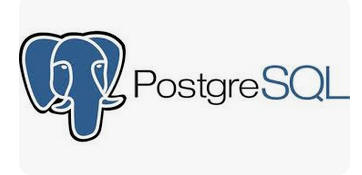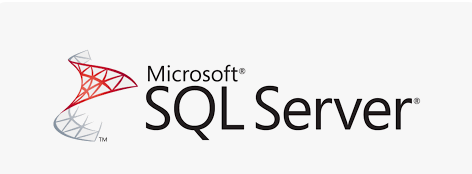

By: Hassan Shareef,
Database Administrator
Since 16 years
Created: Oct-2024
Modified: Oct-2024
Selecting the appropriate database management systems (DBMSs) requires understanding their differences in data handling, performance and features. Microsoft SQL Server (MS SQL Server) and PostgreSQL are two widely-used relational database management systems (RDBMSs), both built around SQL standards but which differ in terms of implementation of datatypes and functionalities.

If you are thinking of transferring data from MS SQL Server to PostgreSQL or vice versa, then the following article might be useful to you. In this article we will be discussing the various datatypes available in both RDBMS's and any differences in their behavior.

Both MS SQL Server and PostgreSQL support a wide array of datatypes, including standard ones like integers, strings, and dates. However, the names and behavior of these datatypes may differ between the two RDBMS's.
| Datatype | MS SQL Server | PostgreSQL | Notes |
|---|---|---|---|
| Integer datatype | INT |
INTEGER |
Both platforms support signed integers. |
| Big Integer datatype | BIGINT |
BIGINT |
Used for larger integer values. |
| Small Integer | SMALLINT |
SMALLINT |
A smaller range of integer values. |
| Decimal | DECIMAL(p, s) |
DECIMAL(p, s) |
Precision-based decimal numbers. |
| Floating Point | FLOAT(n) |
FLOAT(n) |
Floating-point numbers with precision. |
| Real Numbers | REAL |
REAL |
Less precise floating-point type. |
| Datatype | MS SQL Server | PostgreSQL | Notes |
|---|---|---|---|
| Fixed-length string | CHAR(n) | CHAR(n) | Both platforms support fixed-length. |
| Variable-length string | VARCHAR(n) | VARCHAR(n) | Variable-length strings. |
| Text | TEXT | TEXT | Large blocks of text data. |
| Unicode | NVARCHAR(n) | VARCHAR(n) | PostgreSQL handles Unicode in VARCHAR. |

| Datatype | MS SQL Server | PostgreSQL | Notes |
|---|---|---|---|
| Date | DATE | DATE | Basic date storage. |
| Time | TIME | TIME | For storing time-of-day values. |
| Timestamp | DATETIME, DATETIME2 | TIMESTAMP | MS SQL Server has multiple timestamp types. |
| Time with time zone | DATETIMEOFFSET | TIMESTAMPTZ | Stores time with time zone information. |
| Datatype | MS SQL Server | PostgreSQL | Notes |
|---|---|---|---|
| Boolean | BIT | BOOLEAN | BIT in SQL Server stores 1/0 values. |
| Binary Data | VARBINARY(n) | BYTEA | Storing binary data like images/files. |
| Datatype | MS SQL Server | PostgreSQL | Notes |
|---|---|---|---|
| XML | XML | XML | Both platforms support XML storage. |
| JSON | NVARCHAR, JSON | JSON, JSONB | PostgreSQL has native JSON support. |
| UUID | UNIQUEIDENTIFIER | UUID | PostgreSQL natively supports UUID. |
| Array | Not Supported | ARRAY | PostgreSQL supports arrays natively. |
Boolean Type: PostgreSQL has a dedicated BOOLEAN type that stores true/false values. MS SQL Server uses BIT for this, where 1 represents true and 0 represents false.
Text Storage: While both systems support TEXT, PostgreSQL handles text fields more flexibly, allowing for easier manipulation and storage of larger blocks of text without performance degradation. MS SQL Server has different limits based on the type of text data stored, such as VARCHAR(MAX) for variable-length text.
JSON Support: PostgreSQL offers two types for JSON data: JSON (for unprocessed JSON data) and JSONB (binary JSON format optimized for search and manipulation). MS SQL Server does support JSON, but it stores it in NVARCHAR fields, which lacks some of the optimizations available in PostgreSQL.
Array Support: PostgreSQL supports array types (ARRAY), allowing for more complex data structures to be stored in a single column. MS SQL Server does not have built-in array support, but similar functionality can be achieved through table structures or XML/JSON storage.
UUID Support: PostgreSQL provides native support for the UUID type, while MS SQL Server requires the use of UNIQUEIDENTIFIER, which lacks some of the flexibility offered by PostgreSQL's implementation.
MS SQL Server and PostgreSQL both possess unique philosophies and features that make them suitable for specific use cases, aside from datatype differences. Attribute 1 (Licensing and Costs). MS SQL Server is a commercial product with licensing fees; however, there is also a free version (SQL Server Express) with certain limitations available to consumers.
PostgreSQL is open-source and completely free for both commercial and noncommercial use, making it more cost-effective for businesses looking to reduce software expenses. Furthermore, its development and support community makes it more accessible.
MS SQL Server was traditionally only compatible with Windows environments but now also runs under Linux. Even so, most customers prefer Windows environments for its use.
PostgreSQL is designed for cross-platform deployment, meaning it runs on Windows, Linux, macOS and other Unix-based systems, making it more flexible for developers working across different OS platforms.
MS SQL Server boasts advanced features, such as
in-memory OLTP, columnstore indexes, and parallel query processing; making
it suitable for enterprise-grade applications.
PostgreSQL
is widely renowned for its scalability, particularly with regards to
handling complex queries efficiently and supporting JSON datatypes as well
as array datatypes. Furthermore, its Multi-Version Concurrency Control model
enables high concurrency without locking rows - something MS SQL Server
cannot do effectively.
MS SQL Server offers several high-availability options
such as Always On Availability Groups, Database Mirroring and Log Shipping
to ensure maximum uptime for databases.
PostgreSQL
supports multiple replication methods, including streaming replication,
logical replication and hot standby; each provides for various levels of
fault tolerance and redundancy.
PostgreSQL is highly extensible, enabling users to define custom datatypes, operators and functions. Furthermore, there is an expansive ecosystem of extensions such as PostGIS for geographic information systems (GIS) or full-text search capabilities (FTS).
MS SQL Server offers extensibility through CLR (Common
Language Runtime) integration, which allows the use of .NET languages like
C# to write custom functions, but it is not as flexible as PostgreSQL in
terms of creating custom datatypes.
Microsoft offers its SQL Server customers robust support in terms of customer service, documentation and training resources; however, its development remains tightly controlled by them.
PostgreSQL has an active and diverse open-source community that continuously contributes to the core product. While there is no official customer service, several third-party companies offer support.
MS SQL Server and PostgreSQL are both powerful RDBMS platforms, yet each can serve specific users and workloads differently. MS SQL Server offers feature-rich commercial solutions tailored specifically for enterprise environments while PostgreSQL appeals more towards developers and businesses looking for open-source flexibility, cross-platform compatibility, as well as advanced features such as JSON support and array support.
Understanding the key datatype distinctions, as well as wider functional and scalability differences will help you select the ideal platform for your project's unique requirements.
You can download the Data Loader tool to automatically migrate database from MSSQL to PostgreSQL or from PostgreSQL to MSSQL